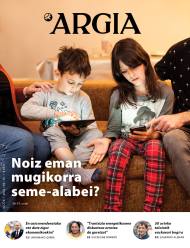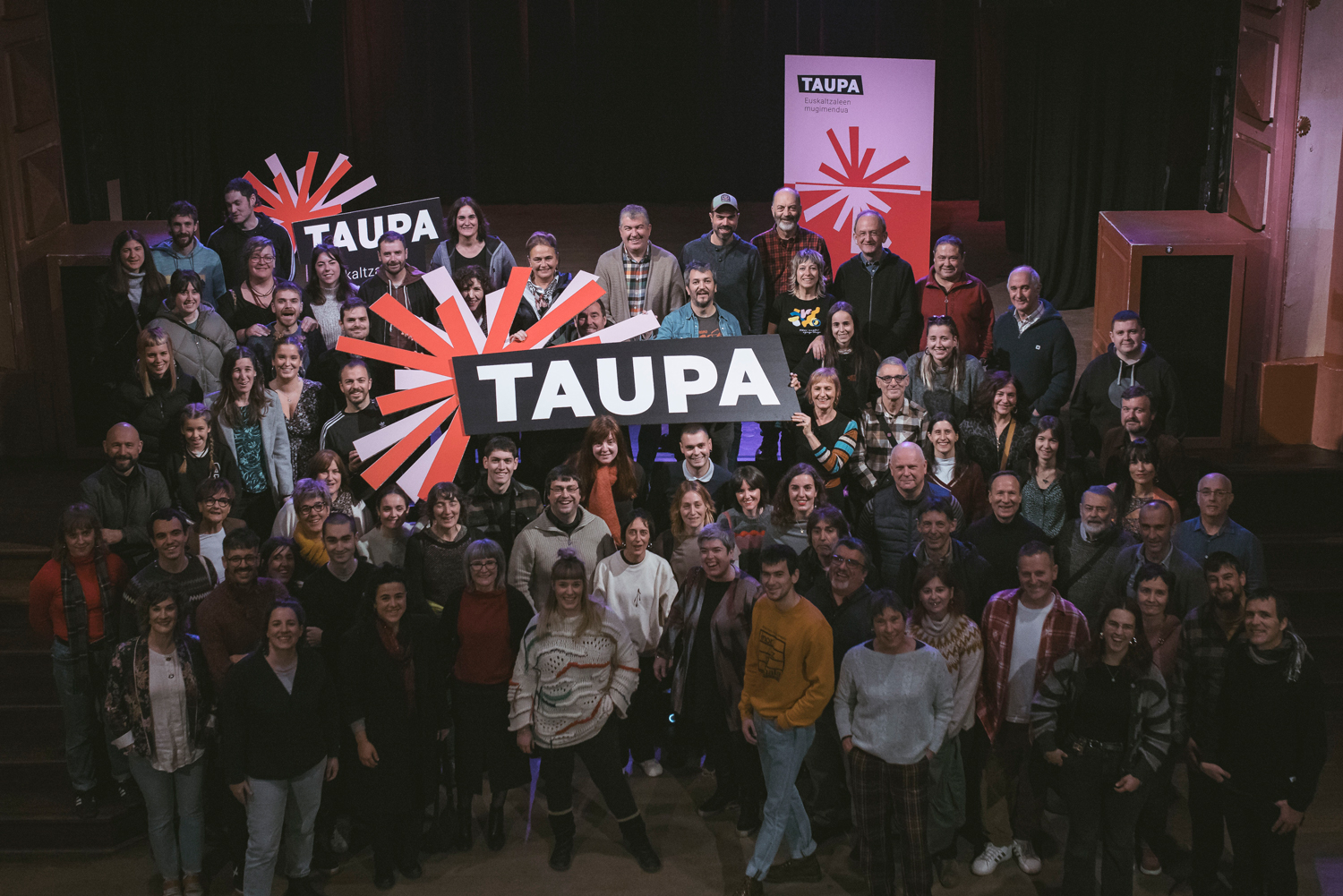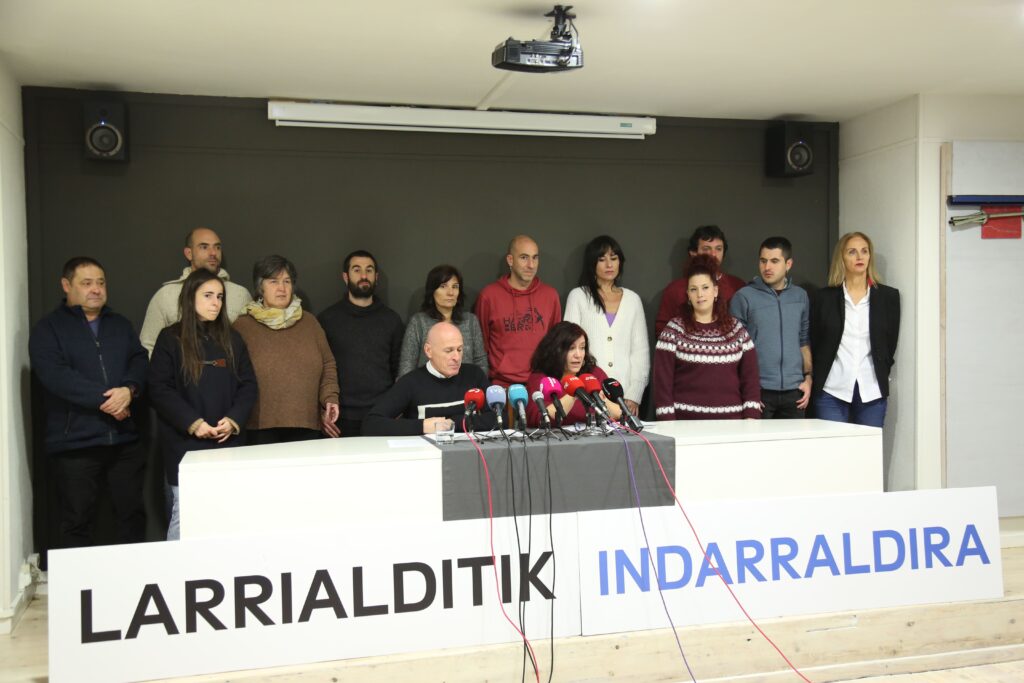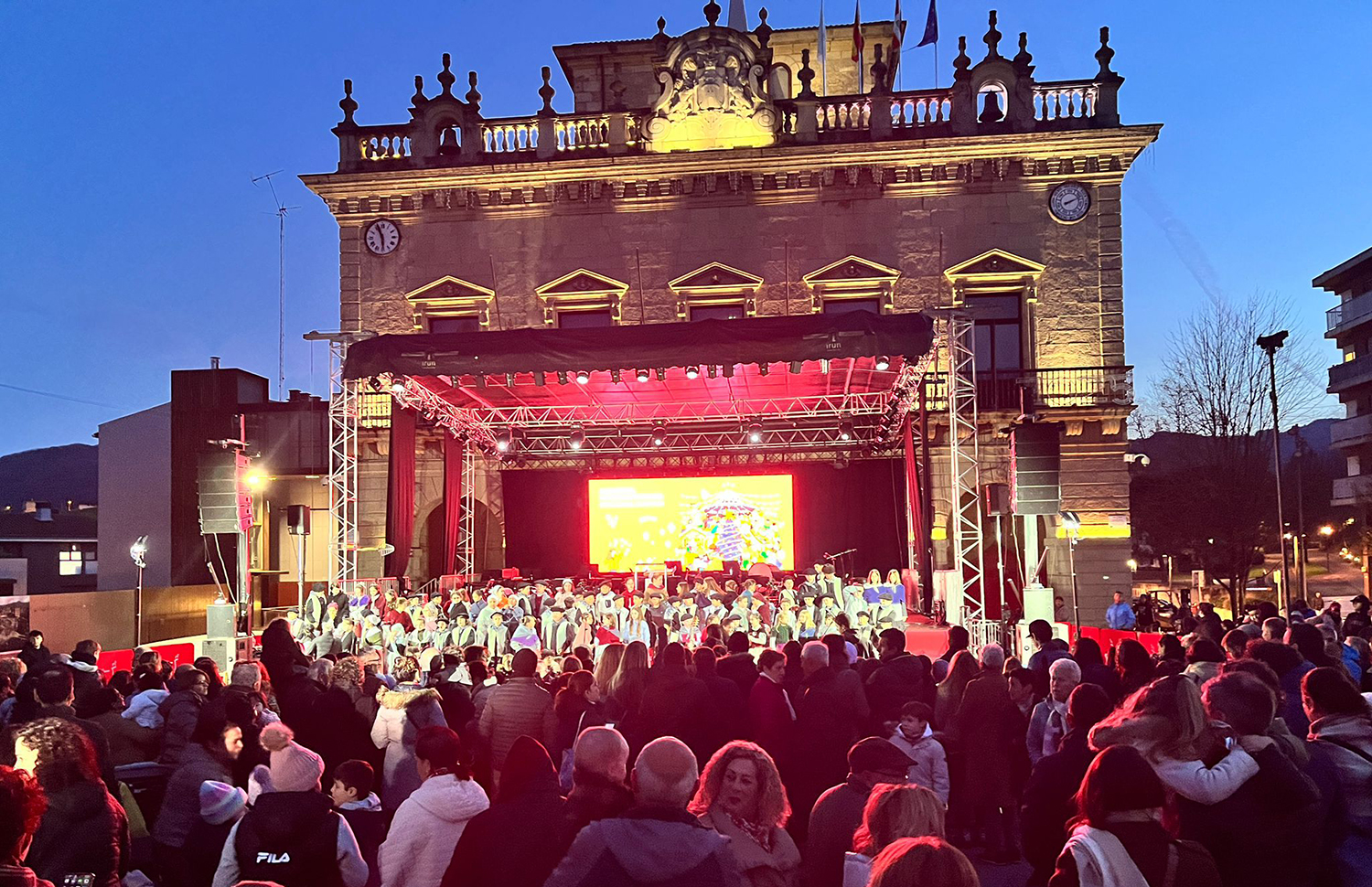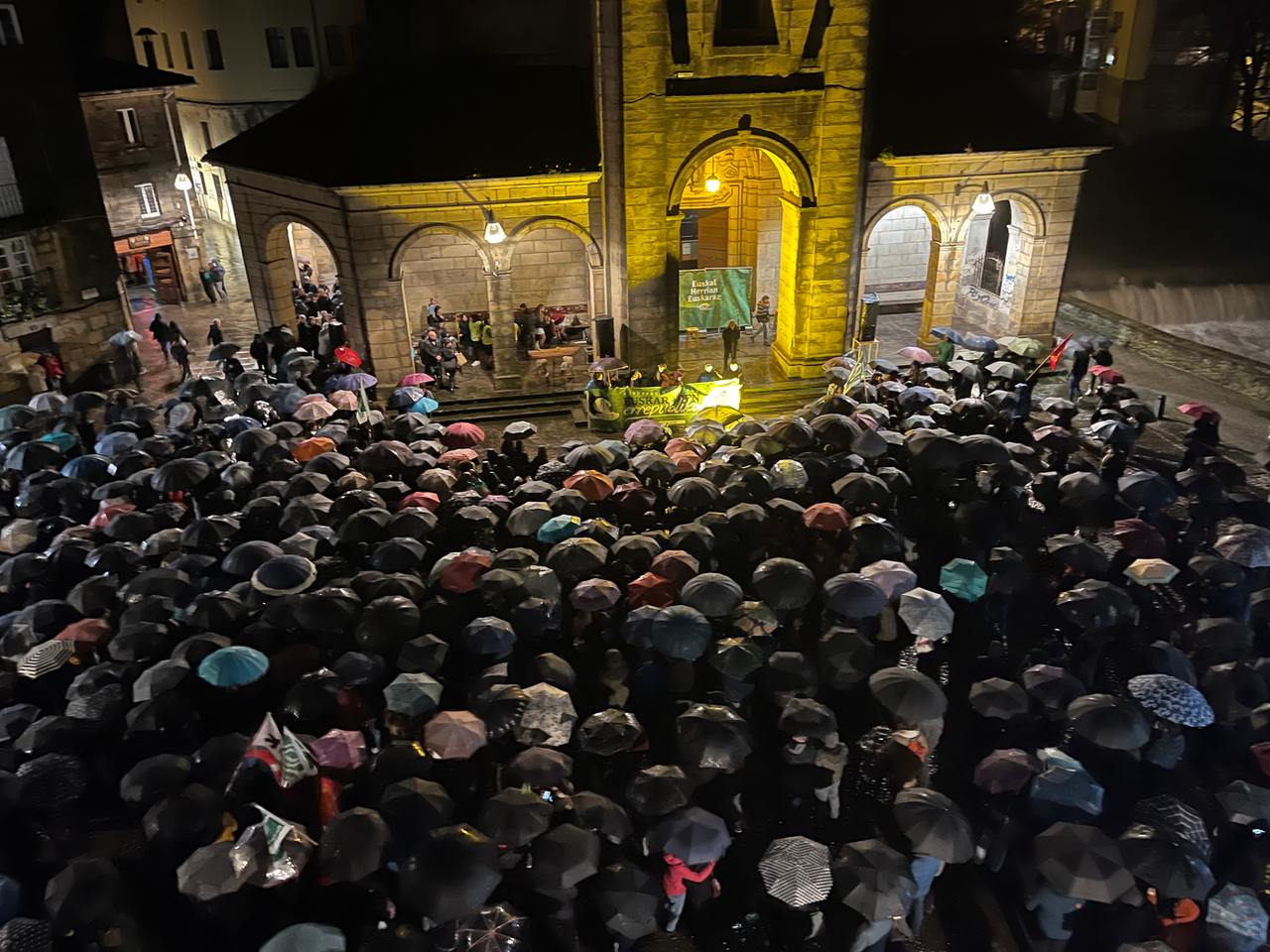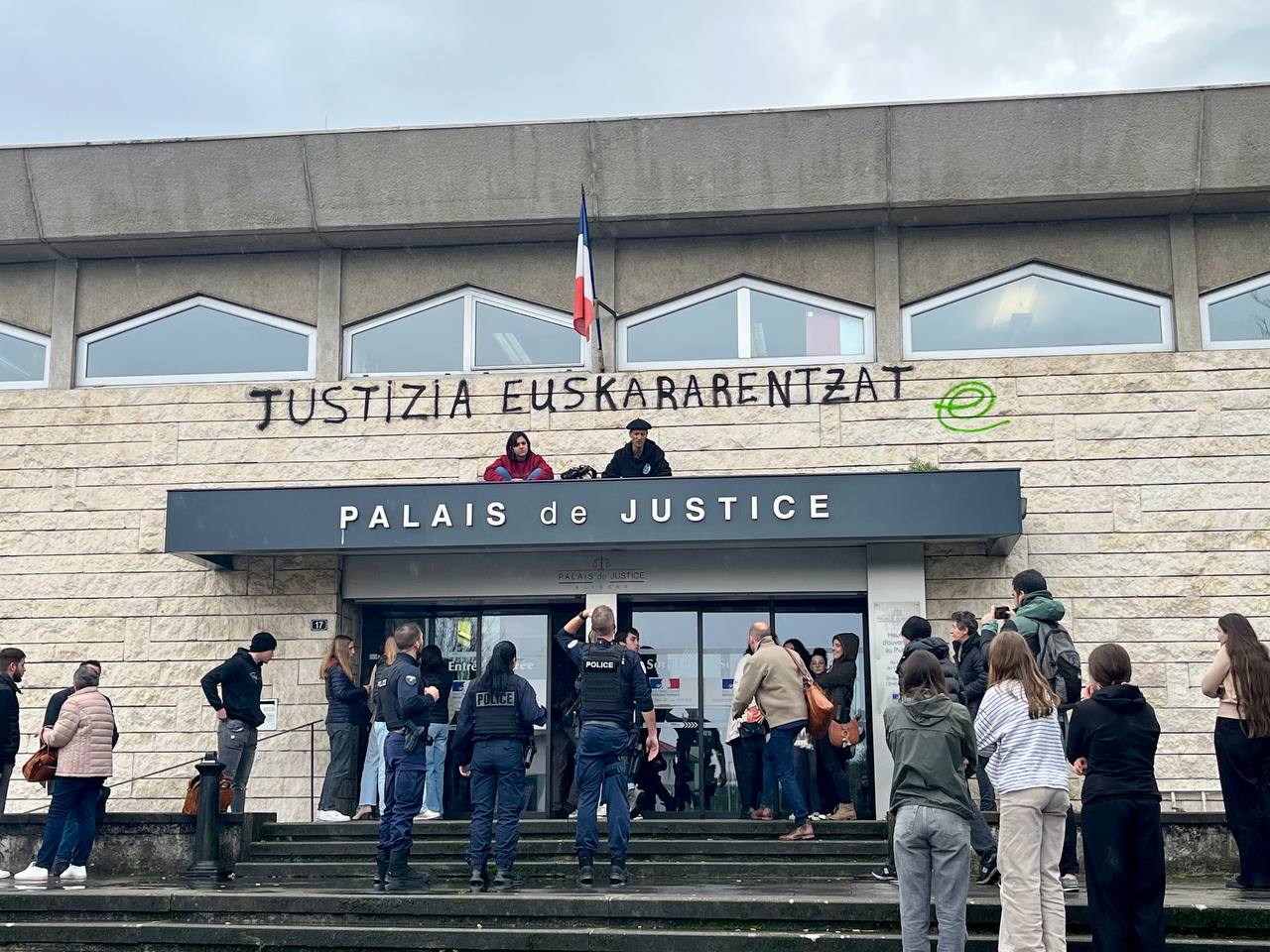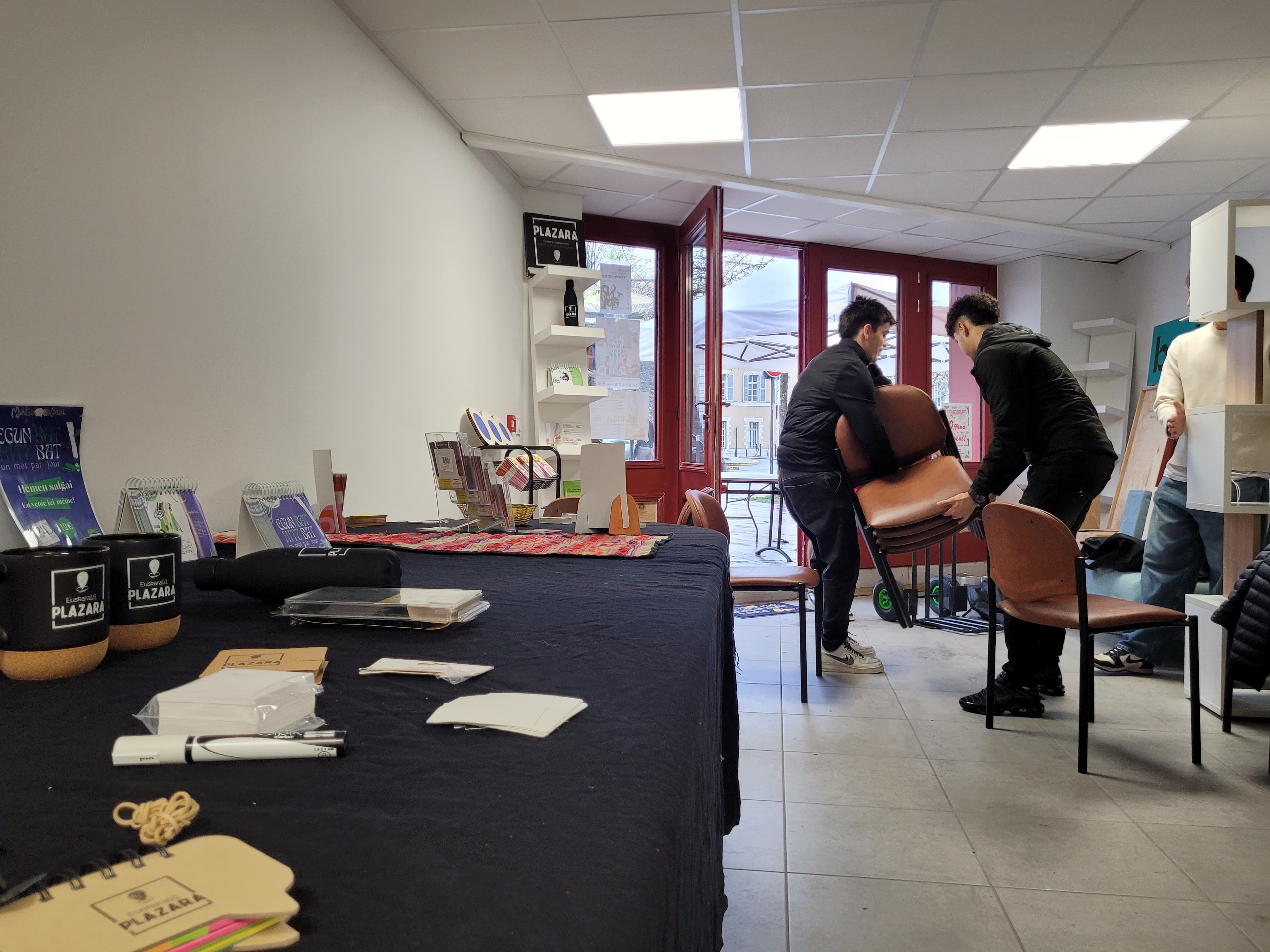“Few things more politicized than language”
- In 1971-72, the Euskaltegi Arturo Campion of Pamplona was created, when several groups that were teaching Euskera in different places were joined. With a flat in Calle La Compañía was one of the first Euskaltegis of Euskal Herria with fixed headquarters. In 1978 they moved to the current premises, to Comedias Street. There we receive German Sagrario (Etxaleku, 1952), who was director for 35 years on the 50th anniversary of the Basque Country. From there, for 50 years, he has looked at the revitalization process.

You had the Basque house and went on to teach those who did not have it in Pamplona. Later, in his introductory speech to Euskaltzaindia, you said “green to yellow.” How was the jump?
I came at 13. Basque was a foreign language for many, they had never heard it. Some asked me to do it in Basque at school, because they wanted to listen. I also remember that in the Ziga store of the Town Hall Square there was a sign, “speaking Basque”. Seeing this made me feel at home somehow. To come, my father said: “If someone tells you something, you say you know two languages. What you have next to you is surely the only thing you know.”
50 years ago, when they opened Euskaltegi, what was the motivation of the students?
I would say that in Navarre motivation remains, to a large extent, what it was in principle. I would call that identity motivation. People thought about here, the Basque people they thought about here, they were home to many, parents or grandparents were Basque. “I am also from here, it is my language and I have to study.” Today, this motivation continues, although it is never the only cause.
The political and popular effervescence was born and grown in Campión. That was going to pollute Euskaltegi.
The barracks of San Fermín, the campaigns against the Law of the Basque Country, the creation of the Zaldiko Maldives Association, Euskalerria Irratia, Egunkaria, Karrikiri… In all of them, although the direct agents are others, have always been people of Campion and Campion. There have always been activists in Euskaldunization and adult literacy. Regulated education has been professionalized, which means, with all its advantages, a loss of militancy. This is less true of adult Euskaldunization, which is not the same thing as before, but I would say it is still played with militancy.
.jpg)
But some say there is a slowdown in the revitalization process…
The administration says that the individual does so and throws the ball at us. But I fear that many times we do not say it about the Basque Country: let the administration do it. We have to be together, but knowing who causes it. And I think we have to be provocative, among others. The great steps taken in the Basque sphere are due to the strength that comes from Basque cultural activity. We should take the lead again.
When he was appointed a member of the Basque Language Academy, it was commented that they somehow went to academia. Is this necessary?
In a place like Euskaltzaindia we need people from all walks of life. There are a lot of people who have a great knowledge of language, and in Iker, for example, those people are voluntaria.Pero in the other section, Jagon, they do promotional work. It has been done before (literacy groups, bertsolaris championships, Bai Euskarari campaigns) and must be followed. And in this sense it is appropriate to have an overview of society.
What importance does adult Euskaldunization have in terms of transmission?
At one point the force was put on the teaching of children, and many people thought, and still think that it is enough for children to Euskaldunicen. Many others think that children will learn more easily than them, but it's not true either. “Children will learn and with that we will advance.” In this sense, the weariness is even greater: before each one started to do it, and now we all acted the same, delegating to another the process of euskaldunization: parents in children, administrations in individuals. Everyone pulls their homework out.
He has also worked in politics. Were Basque and nationalism inseparable to you?
It is often said that language should not be politicised, but all things are politicised and few are more politicised than language. The language policy currently being developed in Navarra is contrary to the Basque Country. And I think today's Basque parties have also abandoned this issue: they are much more Euskaldunes in their operation, but many other things take precedence over Euskera. On the other hand, today there are many Euskaldunes who do not feel nationalist, and it is normal: the more people learn Basque, there will be everything there. But to be Basque without knowing Basque… it is very difficult for me to understand it. I believe that in this respect we are very deficient in political awareness.
What comes to mind when Euskaltegi Arturo Campion turns 50?
Two things. On the one hand, the good thing, that we've been able to last 50 years. Moreover, I say: 50 years and how Pamplona is… Maybe the Basque Country would already need another function, but it still has to continue with what it had at the beginning, and for many years, especially to get speakers. Unfortunately, it still has to live longer, it is not over, 50 years have not been enough.
“I studied pharmacy, but when I started college, some young people started teaching in Basque and needed people. His brother and sister had also passed. I entered because there was a need, I was a Basque and there were people who wanted to learn Basque. From the beginning, we've made it clear that instead of giving a grammatical view, we had to get speakers out of here. For me, Campion has been a meeting point, a point of contact for adults and young people. I have always seen it as a mirror of Navarre or society. I have been a party and have contributed. Professor and director. Above all, it has touched me to be an external image, but we have always worked as a group. I retired in August 2017.”
Euskaraldia comes back. Apparently, it will be in the spring of next year. They have already presented it and the truth is that it has surprised me; not Euskaraldia himself, but his motto: We'll do it by moving around.
The first time I have read or heard it, the title of the... [+]
Lau egunez idekia izanen den merkatu bat antolatzen du Plazara kooperatibak euskararen aldeko beste hamar bat eragilerekin –horien artean ARGIA–.
The survival of the Basque country is not the only problem that the Basques play in the political game, but rather, as a more characteristic element of Euskaldunisation, the one that most reflects our situation. It shows very well what does not appear so much in other areas... [+]
Agorrilaren 27an igorri nizuen gutunean, irailaren 10eko auzian euskaraz deklaratzeko asmoa nuela adierazi nizuen. Auzi honen hastapenean, epaile nagusiari euskaraz zekienez galdegin nion. Gutxiespenarekin ezetz erantzun zidan. Orduan, nere gutuna eskuratu zuenez frantsesez... [+]









